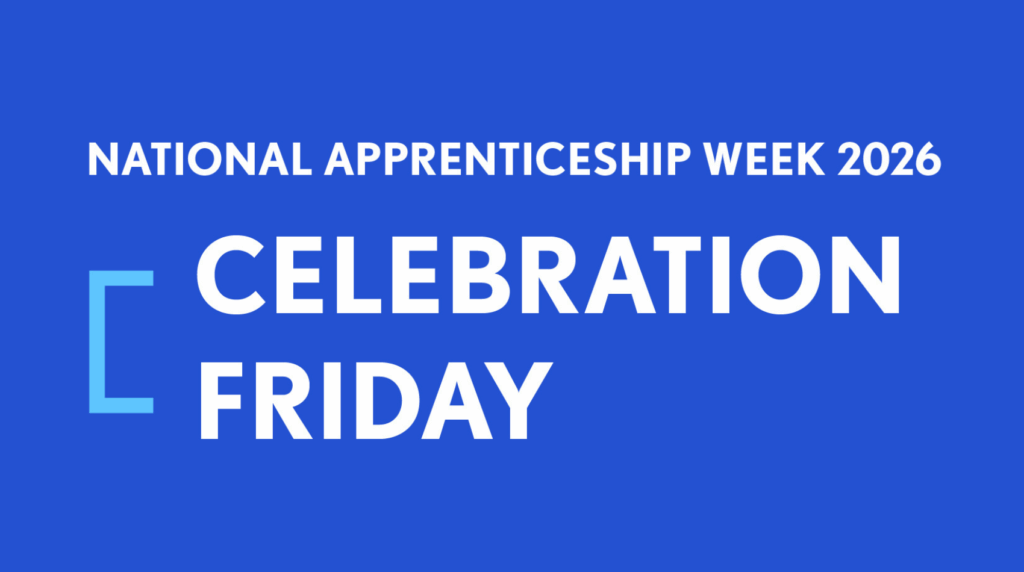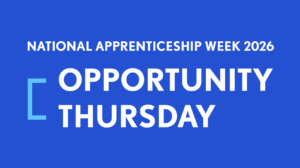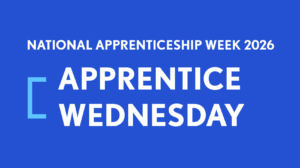Abi Hickey,
Content Creator
10th October 2024
Tips and tricks for nailing your interview
Interviews can be daunting. Whether you’re a seasoned professional or a recent graduate, the pressure to perform well can make even the most confident individuals feel uneasy. However, with the right preparation and mindset, you can transform the interview experience from a nerve-wracking ordeal into an opportunity to showcase your strengths.
Understand the Different Types of Interview Questions

Before looking at specific strategies, it’s crucial to recognise the various types of questions you might encounter:
Behavioural Questions
Behavioural questions focus on how you’ve handled situations in the past. They often start with phrases like “Tell me about a time when…” or “Give me an example of…”. The idea is that past behaviour is a good predictor of future performance.
Example: “Tell me about a time when you faced a challenge at work and how you handled it.”
Situational Questions
Situational questions are hypothetical scenarios where the interviewer wants to assess how you would approach a particular situation.
Example: “What would you do if you were given a tight deadline for a project and one of your team members wasn’t meeting expectations?”
Technical Questions
These questions assess your specific knowledge or skills related to the job. They are common in fields like engineering, IT, finance, and healthcare.
Example: “Can you explain the process of normalisation in a database?”
Competency-Based Questions
Competency-based questions are designed to evaluate your skills and abilities against the job’s requirements.
Example: “How do you prioritise tasks when you have multiple deadlines?”
Personal Questions
These questions focus on your personality, interests, and overall fit within the company culture.
Example: “What do you enjoy doing in your free time?”
The STAR Method: Your Secret Weapon

One of the most effective techniques for answering behavioural and situational questions is the STAR method. STAR stands for Situation, Task, Action, and Result. This framework allows you to structure your answers clearly and concisely.
- Situation: Describe the context or background of the situation.
- Task: Explain the task or challenge you were faced with.
- Action: Detail the specific actions you took to address the task.
- Result: Share the outcome or results of your actions, highlighting any positive impact.
Example:Question: “Tell me about a time when you led a team project.”
Answer:
- Situation: “In my previous role as a marketing manager, our team was tasked with launching a new product within a three-month timeframe.”
- Task: “My responsibility was to lead the project, ensuring that all deliverables were met on time.”
- Action: “I organised weekly meetings to track progress, delegated tasks based on each team member’s strengths, and provided additional support where needed.”
- Result: “We successfully launched the product on time, which resulted in a 15% increase in sales in the first quarter.”
Research and Practice

Preparation is key to a successful interview. Here’s how you can prepare effectively:
Research the Company
Understanding the company’s mission, values, and culture will help you tailor your answers to align with what they are looking for. It also demonstrates that you are genuinely interested in the organisation.
Study the Job Description
Review the job description carefully to identify the key skills and qualifications required. Think about how your experience and skills match up and prepare examples that demonstrate your capabilities.
Practice Common Questions
While you can’t predict every question, practising common interview questions will help you articulate your thoughts more clearly. Consider practising with a friend, family member, or mentor who can provide constructive feedback.
Stay Calm and Confident

Nervousness is natural, but managing it effectively can make a huge difference in how you perform:
-
Take a Moment
If you’re unsure how to answer a question, it’s okay to take a moment to think. A brief pause can help you gather your thoughts and provide a more thoughtful response.
-
Be Honest
If you don’t know the answer to a technical question, it’s better to admit it rather than try to bluff. You can always express a willingness to learn or offer a related skill that may still be relevant.
-
Maintain Positive Body Language
Your body language speaks volumes. Maintain eye contact, offer a firm handshake, and sit up straight. Smiling and nodding can also convey that you are engaged and interested.
Ask Insightful Questions

At the end of the interview, you’ll usually have the opportunity to ask questions. This is not just a chance for you to learn more about the role, but also to show your interest and enthusiasm for the position:
-
Questions About the Role
Ask about the day-to-day responsibilities, the team you’ll be working with, and what success looks like in the role.
-
Questions About the Company
Inquire about the company’s culture, growth plans, and how they support employee development.
-
Questions About Next Steps
It’s appropriate to ask about the timeline for the next steps in the hiring process, so you know when to expect feedback.
Follow Up After the Interview

A well-crafted follow-up email can reinforce your interest in the position and leave a positive impression:
Send a Thank You Email
Within 24 hours of the interview, send a personalised thank-you email to each person you interviewed with. Express your appreciation for the opportunity, briefly mention something specific you discussed, and reiterate your interest in the role.
Stay Patient
While waiting for a response can be anxiety-inducing, it’s important to be patient. If you haven’t heard back within the expected timeframe, a polite follow-up email is appropriate.
Interviewing is a skill that can be honed with preparation and practice. By understanding the different types of interview questions, using techniques like the STAR method, and maintaining a calm and confident demeanour, you can navigate the interview process with ease. Remember, every interview is an opportunity to learn and improve, so stay positive and keep refining your approach. With time and persistence, you’ll be well on your way to landing your dream job.
————–
For further insights and guidance on maximising your apprenticeship funding, please don’t hesitate to reach out to us at:
Tel: 023 8017 0380
Email: hello@kiwieducation.co.uk
Kiwi & Yuzu Ltd is committed to empowering businesses and individuals through quality education, training, and skills development.
Employers
Read More
Individuals
Available Courses
International
Our Partnerships


